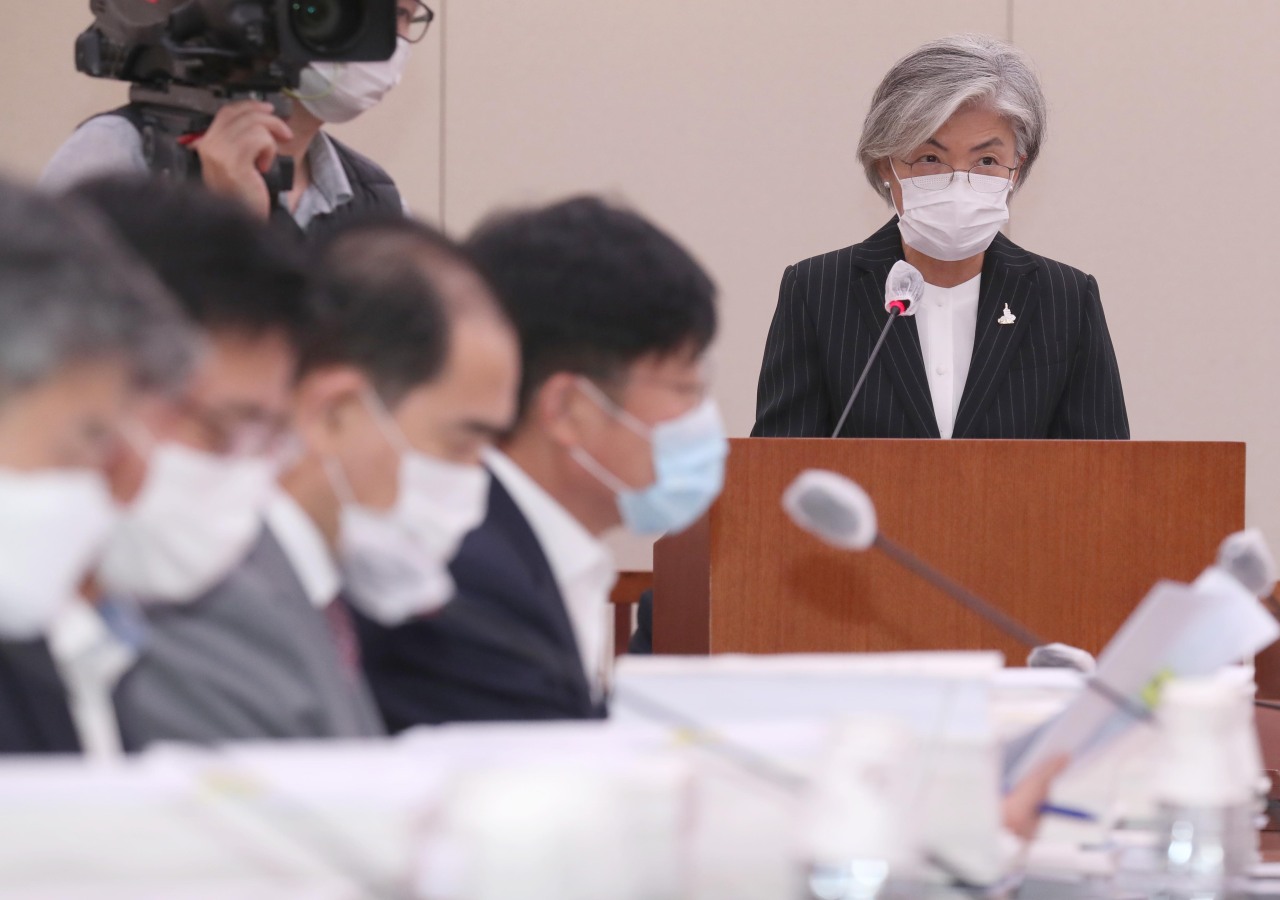FM cautious about assessing Seoul-Tokyo relations after a post-Abe Japan
By Ahn Sung-miPublished : Aug. 31, 2020 - 15:50

Korean Foreign Minister Kang Kyung-wha on Monday expressed caution about projecting future relations with Tokyo, amid rising hope of significant improvement in the strained bilateral ties after the imminent departure of Japanese Prime Minister Shinzo Abe.
“We have to take a cautious stance on casting a hopeful outlook, as the matter itself is difficult,” Kang told a plenary session of the National Assembly’s Foreign Affairs and Unification Committee. She was answering a lawmaker’s question on whether she expects the bilateral relations to improve once the new administration takes place after Abe steps down.
Kang added that Korea needs to take a realistic outlook, as the strained bilateral relations result from the two countries’ differences in perceptions of historical events.
“It is due to Japan’s acknowledgment of the past falling short from what we hope for,” she said, mentioning the soured ties result from the Supreme Court’s ruling on a Japanese firm to compensate Korean victims of wartime forced labor during the colonial era, and Japan’s subsequent trade restrictions on South Korea.
She added the government is seeking to take a two-track approach of considering historic disputes separately while continuing to enhance exchanges in the economy, culture and tourism, as well as people to people.
Abe, Japan’s longest-serving prime minister, on Friday announced his sudden resignation due a health issue, leaving the office a year early. His departure sets the stage for a leadership election within his Liberal Democratic Party, prompting speculation as to who will succeed Abe for Japan’s top job.
“We will closely watch Japan’s leadership lineup, and actively contact key personnel and pro-Korean officials,” she said. “We are closely consulting with the local diplomatic mission.”
Seoul-Tokyo ties remain chilled as discord over wartime sexual slavery and forced labor have deepened, with Abe’s conservative government refusing Seoul’s call for a sincere apology and formal reparations.
Japan has insisted that colonial reparations were settled under a 1965 treaty that normalized bilateral relations and has warned of strong retaliation if Seoul pushes ahead with the sale of Japanese companies’ assets to compensate forced labor victims. In apparent retaliation over Seoul’s top court ruling in 2018, Japan imposed trade restrictions against Korean firms last year.
Seoul has argued that the 1965 bilateral agreement does not take away victims’ rights to seek damages for wartime forced labor and sexual enslavement.
By Ahn Sung-mi (sahn@heraldcorp.com)












![[Today’s K-pop] BTS pop-up event to come to Seoul](http://res.heraldm.com/phpwas/restmb_idxmake.php?idx=644&simg=/content/image/2024/04/17/20240417050734_0.jpg&u=)





![[KH Explains] Hyundai's full hybrid edge to pay off amid slow transition to pure EVs](http://res.heraldm.com/phpwas/restmb_idxmake.php?idx=652&simg=/content/image/2024/04/18/20240418050645_0.jpg&u=20240419100350)

![[Today’s K-pop] Zico drops snippet of collaboration with Jennie](http://res.heraldm.com/phpwas/restmb_idxmake.php?idx=642&simg=/content/image/2024/04/18/20240418050702_0.jpg&u=)